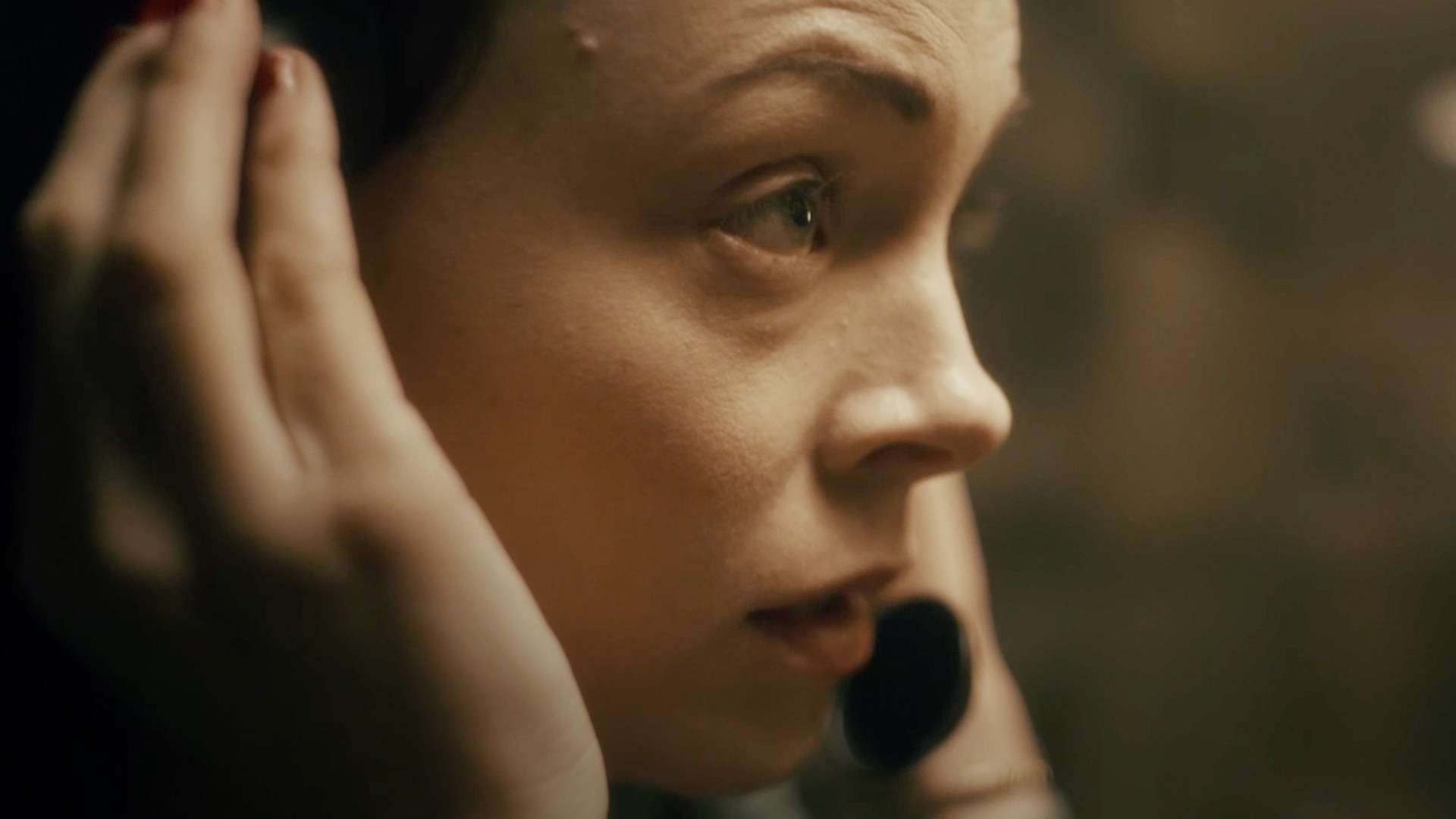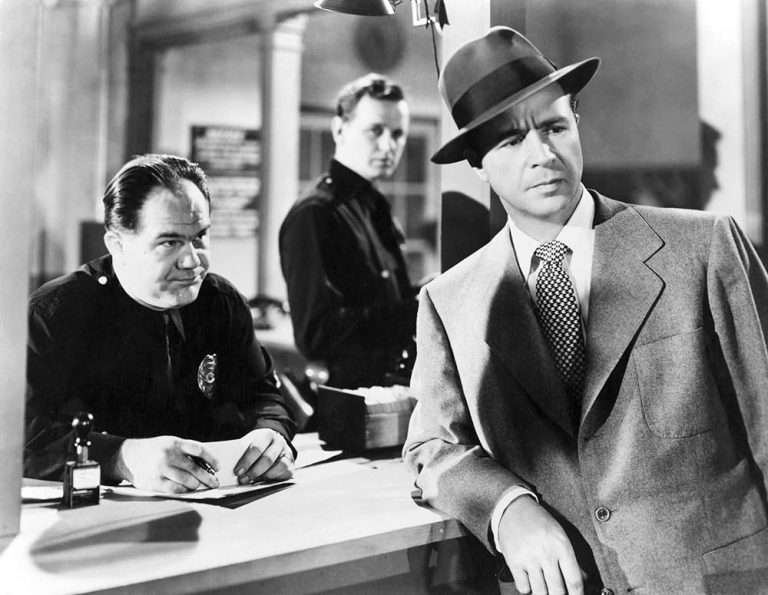“On the Line,” a film shot inside a single room with multiple wires around, might feel claustrophobic after a point. All it shows is one woman in that room, connecting calls on the island of Alderney in 1964. It was a time when people could not get connected to each other without another human being, an operator working as the glue to connect the calls through literal wires. We meet our protagonist, Agnes, through whose eyes the whole film unfolds.
In his directorial debut, writer-director-producer Oliver Pearn hasn’t done a bad job in skilfully constructing a thriller that is also a subtle critique of the war. The story starts in a mundane manner. We see Agnes, the operator, roaming around in a room full of wires and doing the job of connecting the calls of the island over and over again. She is the only employee there, and her tasks are ridiculously monotonous. She says the exact words to each caller and leaves her chair only occasionally to smoke and spin inside the room. What’s interesting here is that even for smoking, Agnes does not go outside. The whole setting appears very suffocating, and it’s not unnatural for the audience to suspect that everything is too rhythmic here to continue this way.
Agnes suddenly gets a call from a certain Martha, who she picks up unsuspectingly. She only realizes that the woman is in danger after speaking for a while. This gets her all pumped up and excited, and Agnes makes it her mission to save that woman. She calls up her friend Betty at the police station, bugs her fiance to do as she tells him, and informs a nearby cafe to alert them about the woman Martha and the man who has taken her. Through her investigation, we gradually come to know that Martha is a nurse and a maintenance person named Harold has taken her.
Agnes gets to know this from Shirley, a nursing home resident where Martha works. With this information, Agnes thinks she has cracked the case, but things seem to be different from how they appeared initially. The film makes the viewers keep guessing about Agnes’ intuition and her understanding of the situation. It is not until the very end of the film that Agnes, along with the viewers, figures out that she has indeed made an error in judgment, and things are definitely not what they seem.

“On the Line” does a decent job of telling the story that it wanted to tell. The setting backs up the plot massively, and Victoria Lucie, as Agnes, offers a compelling performance. The other actors, including the brilliant Harriet Walter, have done wonders with just their voices. They are never seen on the screen, but it’s never difficult to understand exactly what they are feeling or trying to convey. While Richard Heap’s Sergeant Wilks makes his disdain clear when he understands that Agnes is listening to police conversations, Joanne Rogers’ Martha and Royce Pierreson’s Harold deliver their helplessness brilliantly simply over the phone.
Besides working fairly well as a thriller, “On the Line” also comments subtly on the traumatic after-effects of war. As the story turns out in the end, it becomes quite clear that the film has an anti-war subtext. What war does to a person and how difficult it is for an army person to return back to everyday life is brilliantly shown in an understated manner. Simultaneously, the film also comments on women’s aspirations in those days, when they had to sacrifice a lot to build a family. Agnes, the only visible character, wants to be taken more seriously by everyone around her, including her fiance. However, it doesn’t seem that this dream of hers will be fulfilled anytime soon despite her working quite well on it and potentially saving lives.
“On the Line” is a good one-time watch if you are short on time and want something that doesn’t feel too heavy on your head. The film moves fast, and things keep happening one after the other, which will keep you hooked until the end. With the ending twist and the subtle ways in which it deals with serious subjects, the film will not disappoint you if you don’t expect too much from it.



![Sindhubaadh [2019] Review: An Aspiring Ingenious Quest](https://79468c92.delivery.rocketcdn.me/wp-content/uploads/2019/06/Sindhubaadh-Review-Featured-768x432.jpg)


